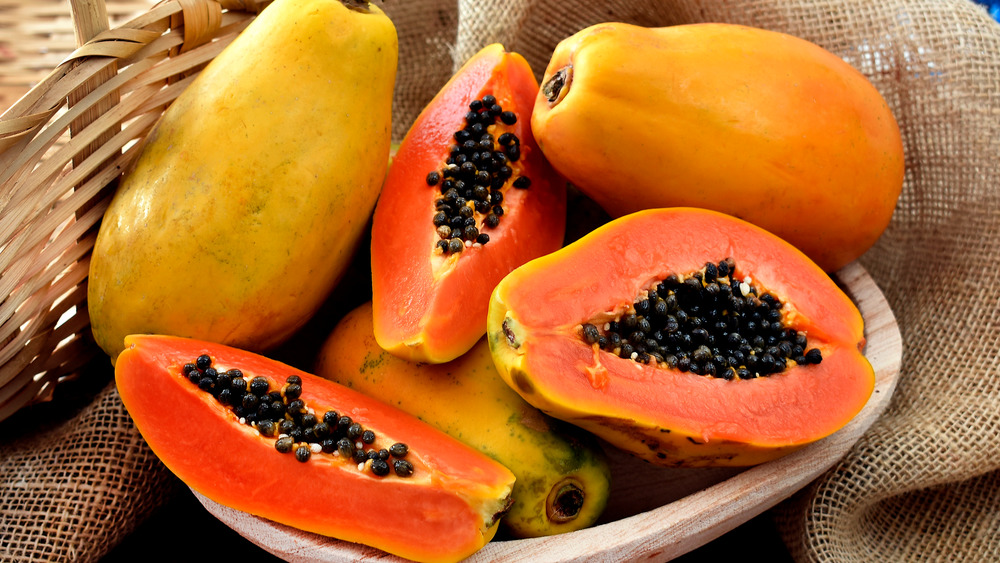You May Want To Think Twice Before Eating Papaya
Ripe, tropical papaya is delicious with a sweetness that is reminiscent of cantaloupe. It's been described as bearing a "mild to fairly sweet flavor" and a "creamy, butter-like" texture (via Med Munch). It is important to wait until papaya is ripened before eating it. Unripe, it has very little flavor.
This member of the Caricaceae family is native to Central and South American tropical regions, according to Everyday Health. Hawaii is the only U.S. state to grow this fruit, according to Mark's Fruit Crops.
And there's no question that papaya is a nutritional powerhouse. According to Everyday Health, papaya is rich in antioxidants, including vitamins C and E, and in dietary fiber, which improves gastrointestinal health and helps to protect against constipation. It also has digestive enzymes, which help with protein digestion. Papaya is also great for those trying to lose weight thanks to its low calorie count. Its fiber allows you to stay full longer so you'll eat less throughout the day.
It is also believed that papaya might also reduce the risk of getting Alzheimer's disease, and, with its antioxidants and lycopene, might protect against cancer. Papaya decreases inflammation in the body, protects the heart, and boosts the immune system. Papaya can also lower blood sugar in people with diabetes, according to Everyday Health. And with the nutrients lutein, zeaxanthin, vitamin C, and vitamin E, papaya can protect the eyes and help prevent diseases like age-related macular degeneration.
What are the possible health risks of eating papaya?
While most people would definitely benefit from having more papaya in their diet, there are some instances in which papaya can actually be harmful, according to Everyday Health.
This tropical fruit can cause side effects in some people, particularly those who have latex allergies. That's right: Like rubber gloves, papaya contains a high amount of latex when it's unripe. The amount of latex decreases as the papaya ripens. If you are allergic to latex, you are probably also allergic to papaya.
Even if you have never had a reaction to latex, papaya can be problematic if you are pregnant. This is because latex can cause uterine contractions, and thus, premature labor, according animal studies published in the British Journal of Nutrition. It is important to talk to your doctor about papaya if you are pregnant.
A final note: while papaya can help to keep your digestive system regular, too much can cause diarrhea and an upset stomach. If you're eating a lot of papaya and experiencing loose stools, consider reducing your intake or speak to your doctor.

